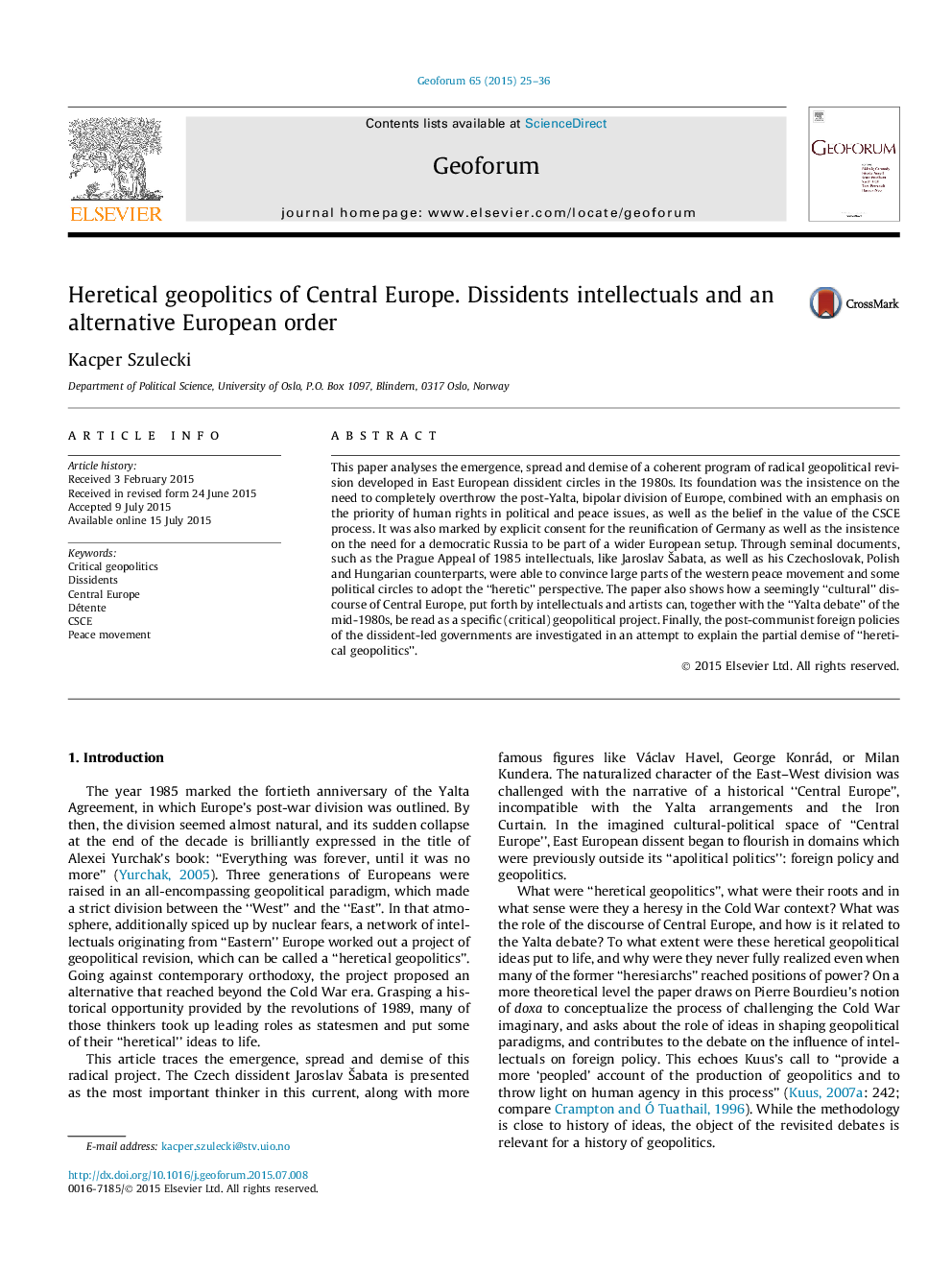| Article ID | Journal | Published Year | Pages | File Type |
|---|---|---|---|---|
| 5073790 | Geoforum | 2015 | 12 Pages |
â¢Exploring the neglected impact of dissident intellectuals on late-Cold War debates.â¢Conceptualizing the influence of intellectuals on geopolitics and foreign policy.â¢Showing the influence of dissident ideas on the Western peace movement.â¢Analyzing the notion of “Central Europe” in geopolitical rather than cultural terms.â¢Explaining the rise and visible fall of heretical geopolitics after 1989.
This paper analyses the emergence, spread and demise of a coherent program of radical geopolitical revision developed in East European dissident circles in the 1980s. Its foundation was the insistence on the need to completely overthrow the post-Yalta, bipolar division of Europe, combined with an emphasis on the priority of human rights in political and peace issues, as well as the belief in the value of the CSCE process. It was also marked by explicit consent for the reunification of Germany as well as the insistence on the need for a democratic Russia to be part of a wider European setup. Through seminal documents, such as the Prague Appeal of 1985 intellectuals, like Jaroslav Å abata, as well as his Czechoslovak, Polish and Hungarian counterparts, were able to convince large parts of the western peace movement and some political circles to adopt the “heretic” perspective. The paper also shows how a seemingly “cultural” discourse of Central Europe, put forth by intellectuals and artists can, together with the “Yalta debate” of the mid-1980s, be read as a specific (critical) geopolitical project. Finally, the post-communist foreign policies of the dissident-led governments are investigated in an attempt to explain the partial demise of “heretical geopolitics”.
